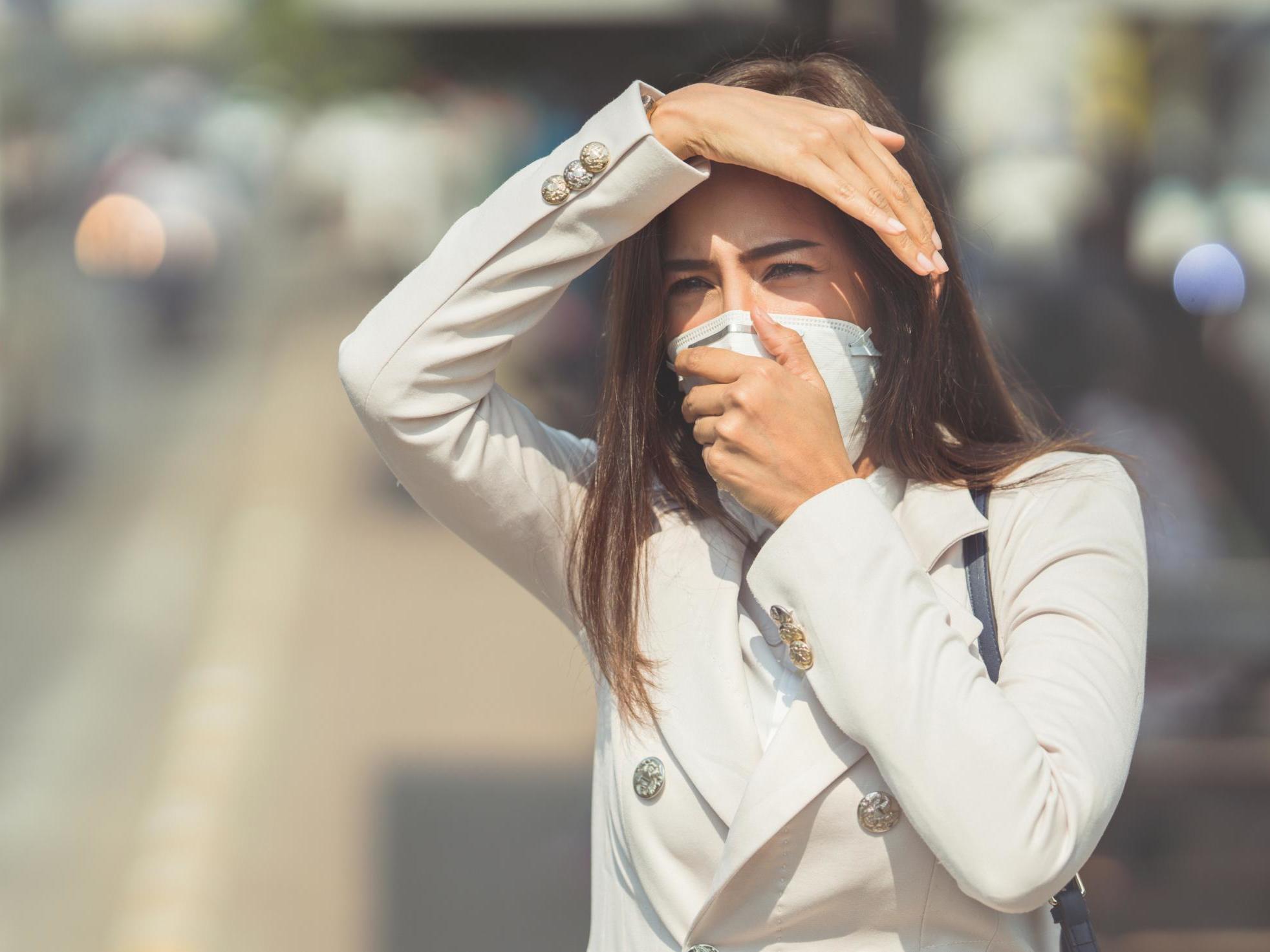Travelling in car while pregnant puts unborn child at risk from air pollution, report finds
Breathing toxic air raises risk of miscarriage and premature births and impacts foetal development

Your support helps us to tell the story
From reproductive rights to climate change to Big Tech, The Independent is on the ground when the story is developing. Whether it's investigating the financials of Elon Musk's pro-Trump PAC or producing our latest documentary, 'The A Word', which shines a light on the American women fighting for reproductive rights, we know how important it is to parse out the facts from the messaging.
At such a critical moment in US history, we need reporters on the ground. Your donation allows us to keep sending journalists to speak to both sides of the story.
The Independent is trusted by Americans across the entire political spectrum. And unlike many other quality news outlets, we choose not to lock Americans out of our reporting and analysis with paywalls. We believe quality journalism should be available to everyone, paid for by those who can afford it.
Your support makes all the difference.More than half of unborn babies in Britain are exposed to higher levels of toxic air pollution because heavily pregnant women are more likely to depend on travelling by car, research suggests.
Air pollution levels are almost double inside a car compared to walking, and about 57 per cent of women use cars more in the later stages of pregnancy, according to a study released for Clean Air Day.
This equates to around 2.6 million unborn babies being exposed to higher levels of air pollution over the last six years, the research, carried out by Opinium, shows.
Previous studies have suggested links between pregnant women’s exposure to high levels of air pollution and increased risk of miscarriage, premature births, low birth weight, infant mortality and childhood respiratory problems.
“The rest of society needs to recognise that for pregnant women sometimes travelling in a car is the only option and that we all have a role to play in reducing the pollution affecting the next generation,” said Chris Large of environment charity Global Action Plan, which coordinated the research.
“In the same way we would consider smoking in front of pregnant women as harmful to the babies’ health, so should we think of idling in our cars so causing unnecessary pollution as equally socially unacceptable.”
Separate research, also by Opinium and commissioned for Clean Air Day found just 16 per cent of mothers were able to regularly work from home during the third trimester of pregnancy. Apart from roles where it was not possible to work remotely, the biggest reason given for not working from home more frequently was a lack of company support.
Professor Jonathan Grigg, professor of paediatric respiratory and environmental medicine at Queen Mary University of London, said: “Air pollution is having a devastating impact on the lives of everyone, particularly children, and embryos.
“These health impacts can include increased risk of developing pneumonia and asthma, and lower lung function growth. This just illustrates how vital it is that we all take action to reduce air pollution, and the need for more stringent standards and policies to address this issue.”
Pregnant mother Celia Wyndham, 36, a recruitment consultant living in London, said the research could make her change her habits.
“I didn’t know a lot about air pollution and am really worried to learn that air pollution in a car can be worse than outside," she said. "I often collected my daughter from nursery in the car. Now, though, I’ll probably walk more instead of travelling by car.”
Last year, research by the Queen Mary University of London revealed for the first time that air pollution breathed by pregnant women reaches the placenta, and has a direct impact on unborn children.
At the time Dr Lisa Miyashita, who worked on the study, said: “Until now, there has been very little evidence that inhaled particles get into the blood from the lung.
“We’ve known for a while that air pollution affects foetal development and can continue to affect babies after birth and throughout their lives.”
Around the world, 93 per cent of children are estimated to be breathing toxic air, which is “uniquely damaging” to children’s health, the WHO warned last year.
About 630 million under-fives live in areas where pollutants breach WHO-recommended safety levels, and even in wealthier countries 52 per cent of under-fives are routinely breathing harmful air.
CleanAirDay.org advises pregnant women: “Cars can have pollution levels inside them that are twice that outside. If you do need to use a car, try to travel at times that mean you will avoid getting stuck in traffic. If you are in traffic, switch the air conditioning to ‘recirculate’ to avoid drawing in the pollution from the car in front of you.”
Join our commenting forum
Join thought-provoking conversations, follow other Independent readers and see their replies
Comments